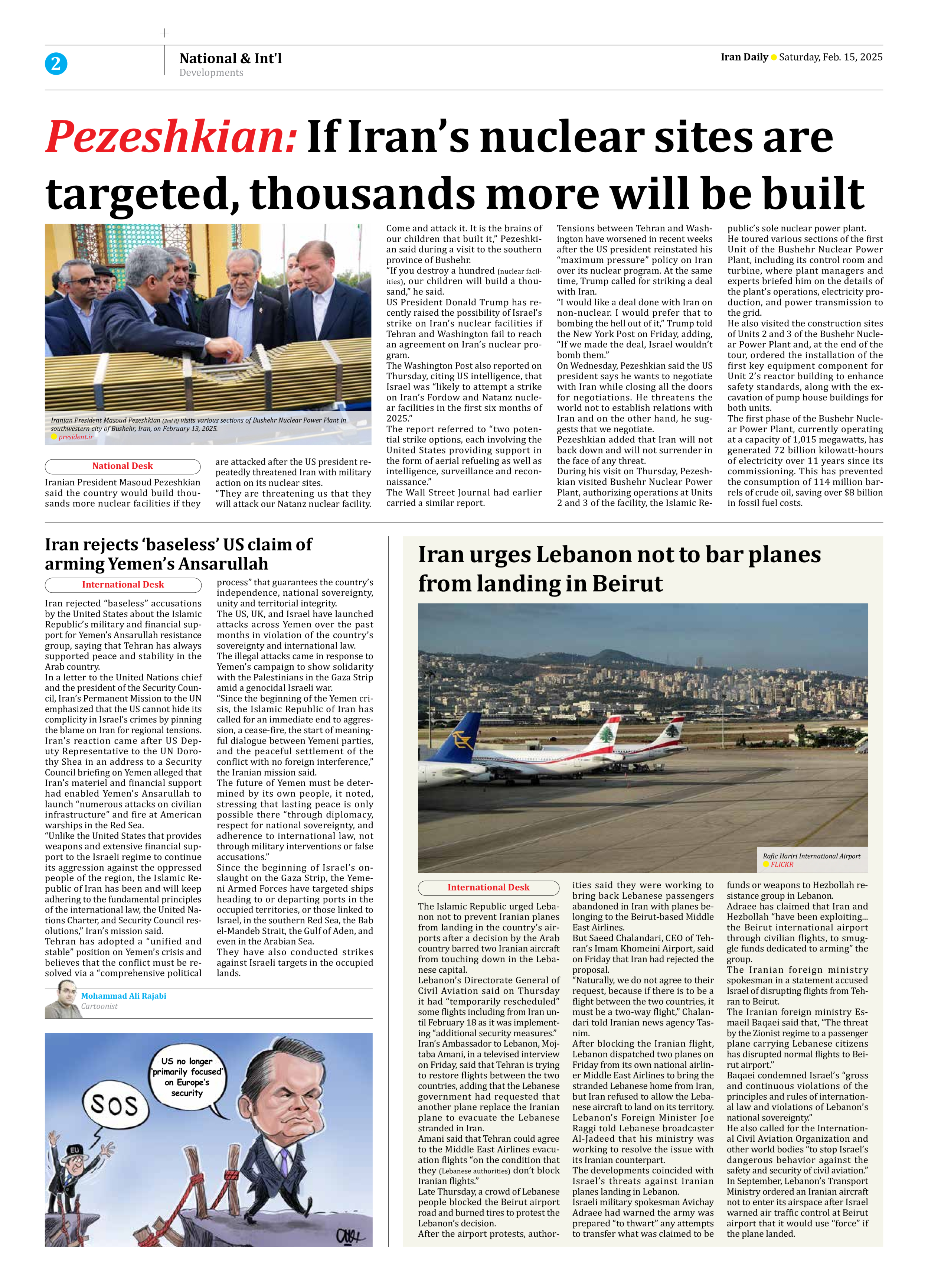
Iran urges Lebanon not to bar planes from landing in Beirut
The Islamic Republic urged Lebanon not to prevent Iranian planes from landing in the country’s airports after a decision by the Arab country barred two Iranian aircraft from touching down in the Lebanese capital.
Lebanon’s Directorate General of Civil Aviation said on Thursday it had “temporarily rescheduled” some flights including from Iran until February 18 as it was implementing “additional security measures.”
Iran’s Ambassador to Lebanon, Mojtaba Amani, in a televised interview on Friday, said that Tehran is trying to restore flights between the two countries, adding that the Lebanese government had requested that another plane replace the Iranian plane to evacuate the Lebanese stranded in Iran.
Amani said that Tehran could agree to the Middle East Airlines evacuation flights “on the condition that they (Lebanese authorities) don’t block Iranian flights.”
Late Thursday, a crowd of Lebanese people blocked the Beirut airport road and burned tires to protest the Lebanon’s decision.
After the airport protests, authorities said they were working to bring back Lebanese passengers abandoned in Iran with planes belonging to the Beirut-based Middle East Airlines.
But Saeed Chalandari, CEO of Tehran’s Imam Khomeini Airport, said on Friday that Iran had rejected the proposal.
“Naturally, we do not agree to their request, because if there is to be a flight between the two countries, it must be a two-way flight,” Chalandari told Iranian news agency Tasnim.
After blocking the Iranian flight, Lebanon dispatched two planes on Friday from its own national airliner Middle East Airlines to bring the stranded Lebanese home from Iran, but Iran refused to allow the Lebanese aircraft to land on its territory.
Lebanon’s Foreign Minister Joe Raggi told Lebanese broadcaster Al-Jadeed that his ministry was working to resolve the issue with its Iranian counterpart.
The developments coincided with Israel’s threats against Iranian planes landing in Lebanon.
Israeli military spokesman Avichay Adraee had warned the army was prepared “to thwart” any attempts to transfer what was claimed to be funds or weapons to Hezbollah resistance group in Lebanon.
Adraee has claimed that Iran and Hezbollah “have been exploiting... the Beirut international airport through civilian flights, to smuggle funds dedicated to arming” the group.
The Iranian foreign ministry spokesman in a statement accused Israel of disrupting flights from Tehran to Beirut.
The Iranian foreign ministry Esmaeil Baqaei said that, “The threat by the Zionist regime to a passenger plane carrying Lebanese citizens has disrupted normal flights to Beirut airport.”
Baqaei condemned Israel’s “gross and continuous violations of the principles and rules of international law and violations of Lebanon’s national sovereignty.”
He also called for the International Civil Aviation Organization and other world bodies “to stop Israel’s dangerous behavior against the safety and security of civil aviation.”
In September, Lebanon’s Transport Ministry ordered an Iranian aircraft not to enter its airspace after Israel warned air traffic control at Beirut airport that it would use “force” if the plane landed.







